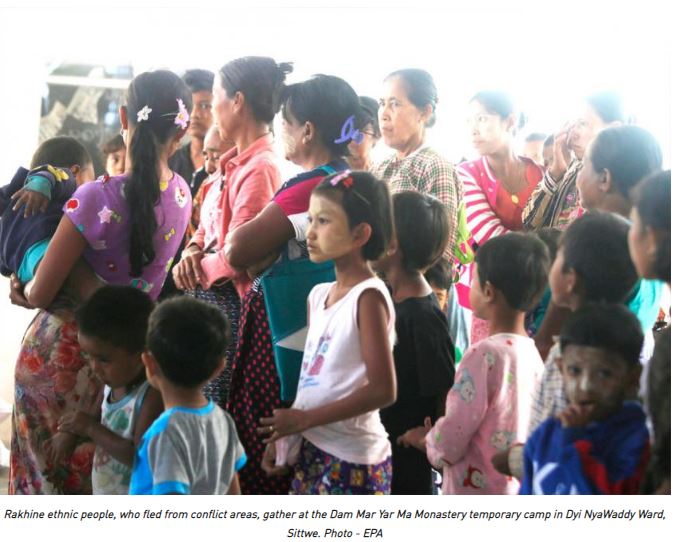Conflicts in Myanmar a challenge for businesses, says World Bank
Myanmar is expected to grow at a rate of 6.4 percent in fiscal 2019-20 from as a result of higher government spending and private investments but a rising occurrence of conflict and violence could hold investors back, according to the World Bank’s Myanmar Economic Monitor report, released Tuesday.
The report noted that the presence of armed actors and conflicts present additional challenges for businesses in one-third of Myanmar, as those operating in conflict-affected areas bear additional costs to stay open.
This will have a negative impact on business, especially on employment. “Myanmar continues to experience robust growth but as the global economic environment deteriorates, the importance of domestic factors such as prevalent conflict challenge investor sentiment and hamper the country’s long-term prospects,” said Gevorg Sargsyan, Acting World Bank Country Director for Myanmar.
“Urgent actions are needed to address sources of conflict, improve social inclusion, and foster a diversified and responsible private sector to sustain economic performance and set the foundation for Myanmar’s future prosperity,’’ he said.
The report added that other factors such as low private sector productivity and constraints such as difficulties accessing finance, reliable electricity and skilled workers as well as land issues also strangle growth.
Economic growth is expected to reach 6.4 percent in 2019-20, compared to 6.3pc a year before, buoyed by growing investment in the transport and telecommunications sector and planned infrastructure spending by the government before the 2020 elections.
‹›Myanmar›s economy proves resilient amid intensified domestic and external risk, but sustained reform momentum is essential to raise the outlook,›› Hans Anand Beck, Lead Economist of World Bank Myanmar, said.
Mr Beck noted that consumption, export and foreign investments have held up while the kyat has also stabilised. He added that although the fiscal deficit is within limits, more revenues can be collected and better spent.
He warned that global and regional growth has been lower than expected and trade tensions remain. Domestic inflation has risen on supply challenges, while rising conflict, the ongoing Rakhine crisis and uncertainty before election could impact investor sentiment.
According to the report, reforms have lifted Myanmar›s ranking in the recent World Bank Group Doing Business Index. But firms in Myanmar need greater access to inputs such as finance, land, and skills, better connectivity, and an enabling business environment to support a responsible private sector.
It recommended that polices should be geared towards private-sector led growth by fostering market expansion, improving the allocation of resources and developing the capacity of market participants.
Source: https://www.mmtimes.com/news/conflicts-myanmar-challenge-businesses-says-world-bank.html


 Thailand
Thailand




